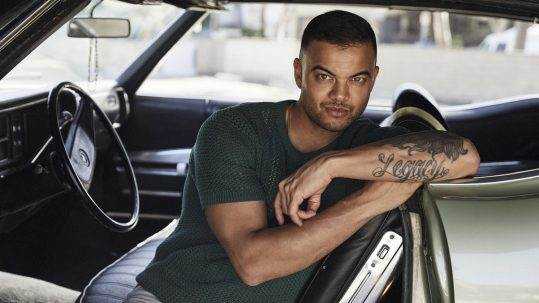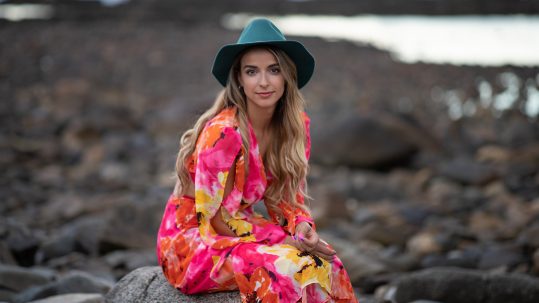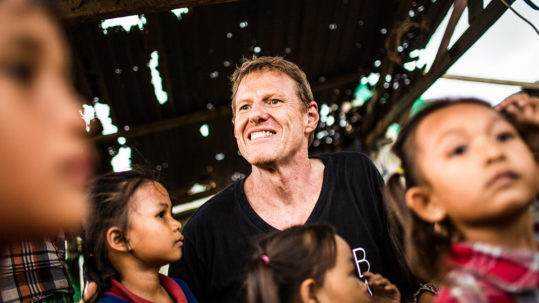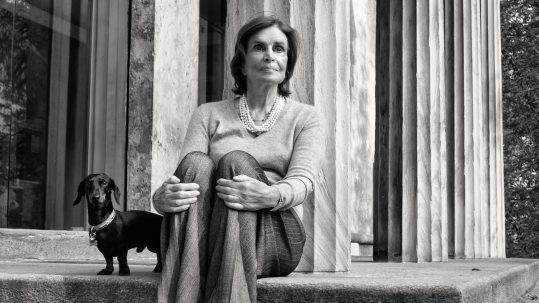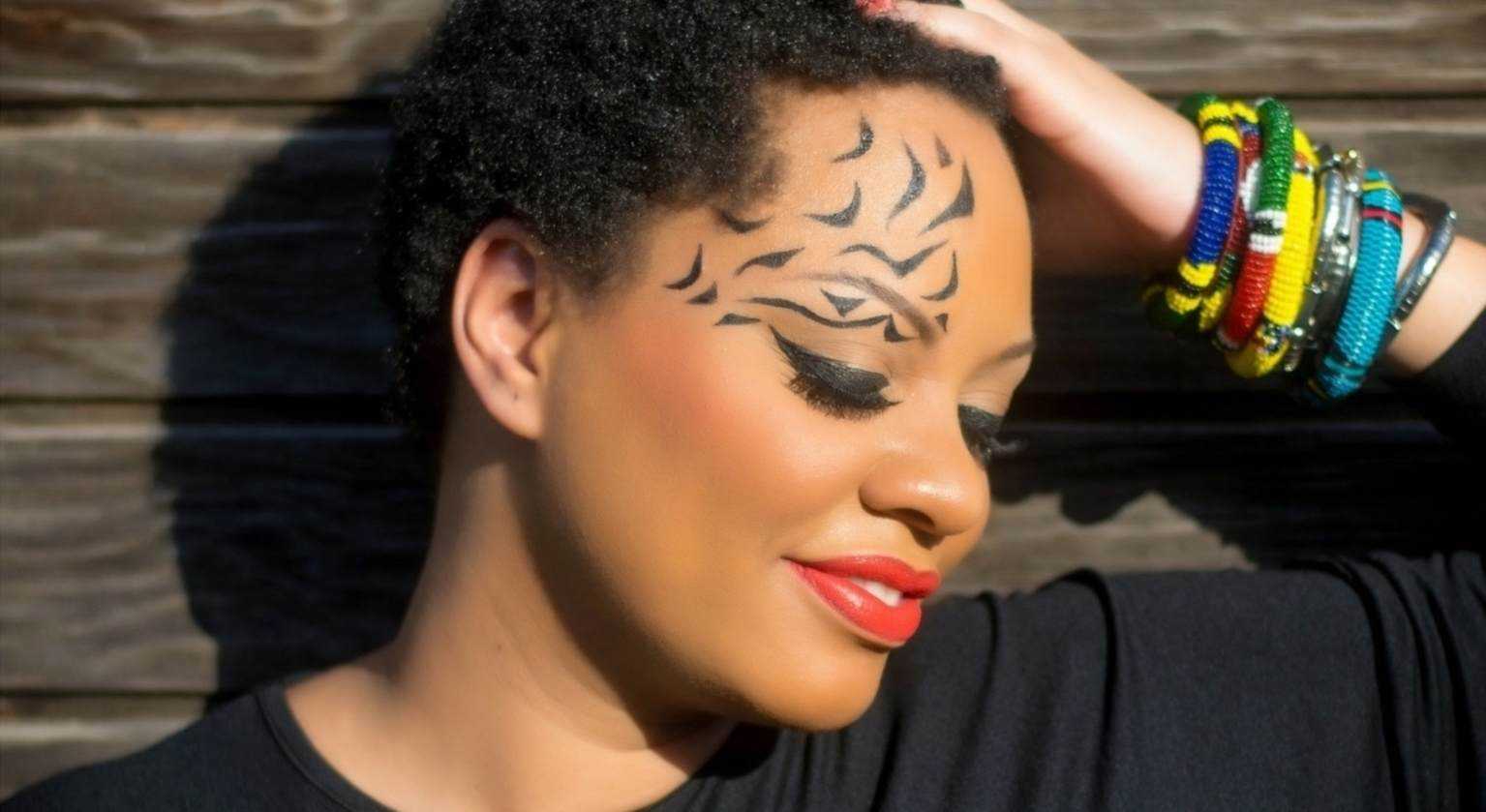
11 Mar Stevy Mahy: Renaissance Woman
Photo by Guillaume Aricique – Happymanphotography
Stevy Mahy
Best known for her music and an artist of many talents, Stevy Mahy crafted her first book, Renaissance Woman, like a private journal. Exceptionally gifted and generous in spirit, no soul is untouched by her creative impulse. Like the magical moment when a chrysalis becomes a butterfly, Stevy Mahy takes us into a world of self-discovery. Renaissance Woman, the journey of a woman in quest of the Divine that lies within.
By Victoria Adelaide | March 12. 2018
Victoria Adelaide: You wrote: “On April 4th at 11.50am, I came to know myself.”
Stevy Mahy: That day, I was in my living room when all of a sudden, I felt unexpectedly overwhelmed by a sea of unpleasant memories. The strangest thing was the feeling I had of seeing myself from the outside, of being fully aware in that moment that I had never stood up for myself. In fact, the opposite was true: I stood with others against myself. That was something I had never been aware of until that very moment, that moment of real understanding. I cried, I calmed down, lay down and I started a real conversation with myself, understanding that there is an “I “. Understanding that all the effort I always put into pleasing people to make them like me and to feel integrated, all the love, care, and attention I gave away, I never gave any of it to myself. I had no self-awareness. Of course, you know you’re here, you are alive, you’re breathing but there was a dimension of myself, my inner emotional landscape, that I had never taken into consideration.
VA: We often hear than thinking solely about ourselves is selfish. Do you think that at some point in being permanently encouraged to turn our attention to others, you may have forgotten about yourself?
SM: That’s right. We are told that to love oneself is to be selfish, to be self-absorbed, so as a result we are permanently in a state of selflessness.
VA: Isn’t the love of oneself a beautiful gift one can give to another?
SM: Indeed. This is obviously something I understood later on because it’s not what society tells us. Society tells us that when you are too interested in yourself, you are full of yourself. We praise the gift of selflessness and I was in this kind of spirit until l realized that in order to give I needed to have something to give. I needed to take care of what I had within me, nurture it, to be able to decide to share it or not. This personal awakening really happened that day in a very powerful manner.
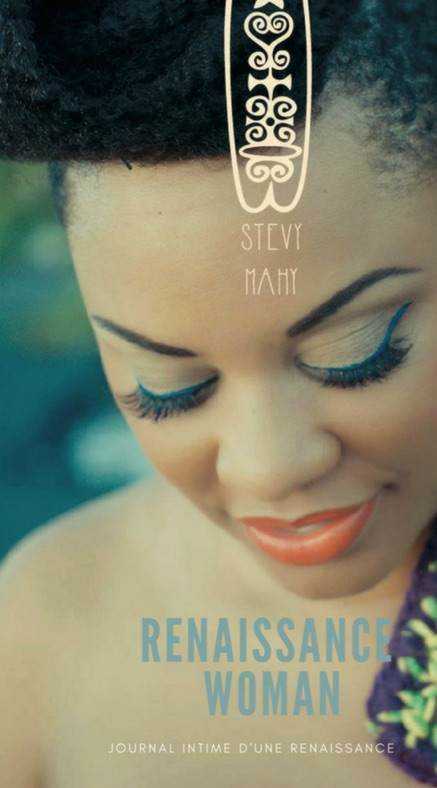
Renaissance Woman by Stevy Mahy | Editions Nèg Mawon | Photo by Guillaume Aricique – Happymanphotography.
VA: So was it the turning point that led you to write your book?
SM: Well, what happened is that after this realization of self-awareness, I really started a true conversation with myself for the first time. I apologized to myself and then I told myself that it was Ok, that I had nothing to forgive. And it all started like that. I had these exchanges with myself, these moments of listening, where I paid great attention to my inner voice. I always liked to write but that day I decided to start writing about my internal dialogue.
VA: How long did it take you to write about your journey through self-discovery?
SM: Well, the process stretched through months, years. I would say about two years, in fact. I wrote sporadically, driven by my mood, moments of reflection, etc. That’s why this book was written like a private journal, with dates, specific hours, all along in harmony with my reflections.
VA: Do you think society puts too much pressure on women?
SM: Well, I think that it’s not even a question of pressure. The issue being that society was not created by and for women. Our place in society is almost by default.
VA: Renaissance Woman is also a community, a platform where you share and give to other women. Why is it so important for you to empower other women?
SM: Because it’s so liberating and to me that is my “Good News”. (Smiles) After my first album, I met a lot of women. Many people came to me with their problems and I realized that we had common issues. On certain topics, I had the key to understanding what I felt they needed. If it had worked for me then it could work for others. That is also the concept behind my work as an artist. It’s all very coherent. My creativity is rooted in a spirit of interconnection. I’m well aware of the connection we all have with one another, that the well-being of a person impacts me and vice versa. I am an integral part of a society. I am part of my environment, of my community and my larger communities, so I try to play my role as an “Artivist” as best as I can. I would describe it like that. (Laughs)
VA: What do you like the most about being a woman?
SM: I like this innate ability we have to create, to give life. This ability is imprinted on us, in our flesh, in our being from a physiological point of view of course, but not limited to it. I love the idea that I have within me the resources that enable me to be and to recreate myself. I think there is something that is specific to being a woman, that she can be so many things at the same time.
VA: Spirituality seems to be a big part of your life, being connected to your artistry. Do you have rituals, a routine or a discipline that you follow?
SM: Yes, I consider myself as a spiritual person but I don’t impose any kind of ritual on myself. Instead, I choose to follow my path, my instincts, my inner voice and to feel in harmony with myself, the elements, Nature, the Universe and be in the “Now”.
VA: We are all the product of our past. Is there something that happened in your childhood that shaped you to become the woman that you are today?
SM: Well, two things happened that influenced my viewpoint on death and therefore, my urge desire to live: My father died when I was 7 years old, so very early on I was aware of the impermanence of life. Then, at around 20, I had peritonitis and was saved by surgery with just a few hours to spare. These events really impacted my perspective on life and led me to understand what was my purpose in life and to live in the moment. I really have this urge to do everything I can, as much as I can. Renaissance Woman references the women of great learning and expertise during the French Renaissance period. I really want to explore all my potential. The great personal loss that I experienced in early life really ignited the relationship I have with living in the “Now”.
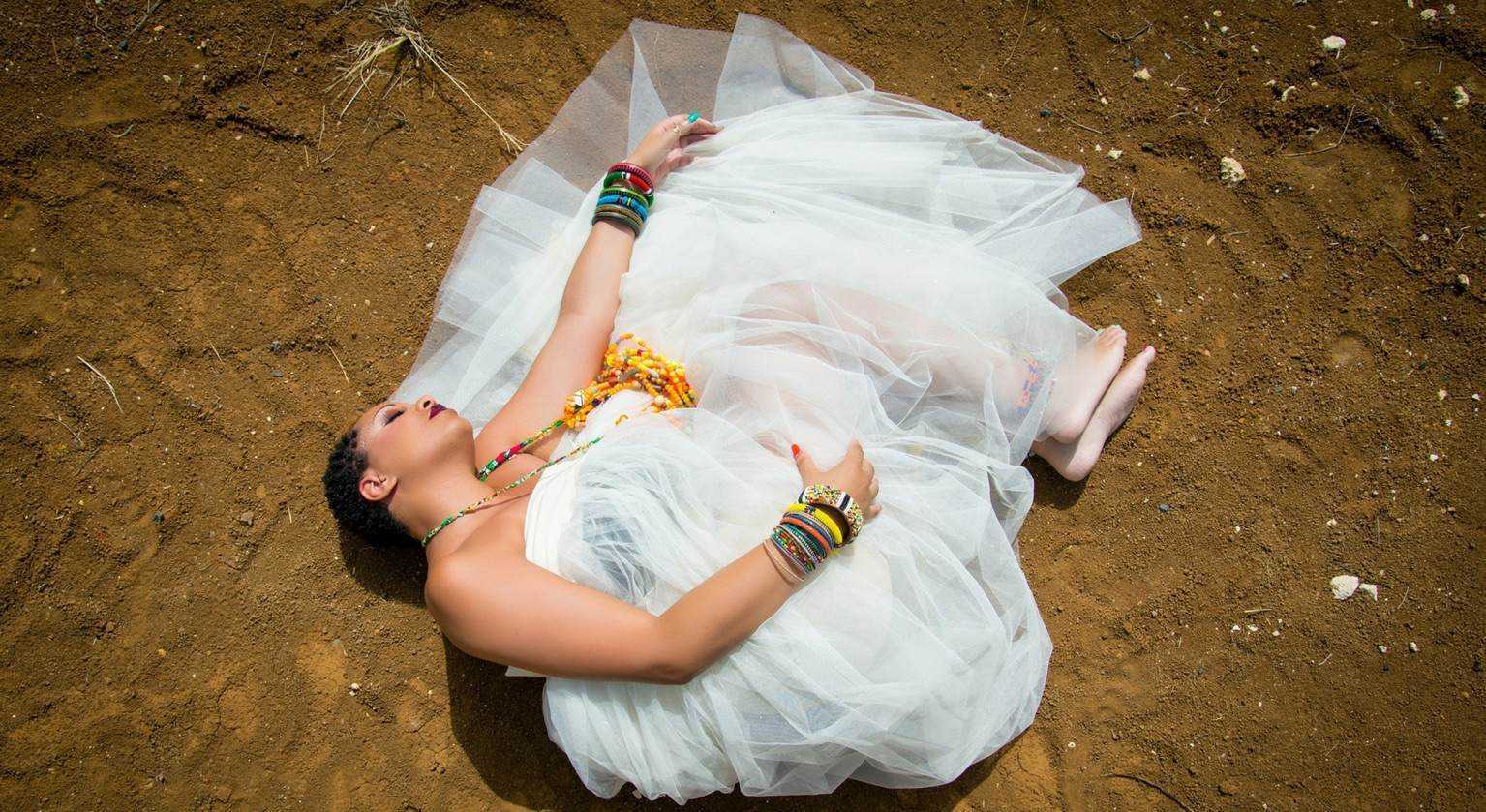
Photo by Guillaume Aricique – Happymanphotography.
VA: You speak about Life, about the transformation life events made on your perception of what life and death are. How do you perceive death now?
SM: In my quest for letting go, I realized that it is best to accept death. Whenever we cling to relationships, to a job or anything really, the real fear underneath is always the fear of death. And from the moment I accepted this, my relationship with death became peaceful. I now see death as a beginning of something else. It is the acceptance of the death of a lot of things actually. When we speak of Renaissance, we can say that refers to a rebirth following the end of something before. As a matter of fact, it can even describe the death of the woman that I used to be.
VA: A few months ago you celebrated your “awakening” with yourself surrounded by friends. Do you think people do not take enough time for self love, while they always seem in such a hurry to give away their love to others?
SM: The foundations of our society are built on the principal that I am not worthy of being loved. And I’m talking about our Western society. If we take Judeo-Christianity, it says, you were born in sin. Intrinsically, you carry something which is bad which you will have to expiate through a savior or by other means. For instance, society sanctifies marriage, so finally, women will be able to find their salvation through a man, by marriage. Promoting personal introspection is of no interest to society. Society is driven by economy and the mundane. We are led to question, “What brought me here?” And it’s true that often we need a catalyst that drives us to look for something else. We are not taught to question but when we do, we are often seen as heretics. Obviously some people understood my initiative but I know that many did not.
VA: What would you like to say to women who read this interview?
SM: I would like to say that your true self is waiting for you. There is an inestimable treasure within us. Even if at first it’s scary to have to face certain things, when we have peeled back the layers the reality is really beautiful. I encourage those who are on a path of love. Also, life is a journey. There is no hurry. We each have our own pace and our own individual path. It’s about taking the time to fall in love with ourselves. Well, that’s what it was for me.
...It's about taking the time to fall in love with ourselves.``


